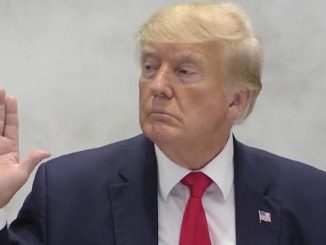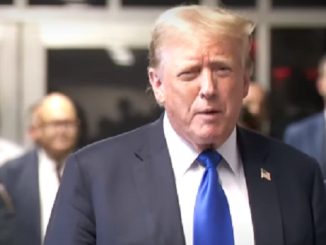
A US judge has blocked attempts by the White House to end a programme barring the deportation of children brought illegally to the US by parents.
In September, President Donald Trump rescinded the Deferred Action for Childhood Arrivals (Daca) programme.
But San Francisco’s Judge William Alsup ruled it must stay in place while litigation against the move continues.
The Obama-era scheme protects some 800,000 people, and also provides temporary permits for work and study.
What did the San Francisco judge order?
In his ruling, William Alsup stated that “the government is hereby ordered and enjoined, pending final judgment herein or other order, to maintain the Daca programme on a nationwide basis on the same terms and conditions as were in effect before the rescission”.
He said the justice department’s argument that the scheme was illegal was based on a “flawed legal premise”.
The district judge ordered the government to process renewal applications from people who had previously been covered.
However, this would not be the case for those who had never before received protection under the programme.
What about the Trump administration’s reaction?
White House officials have so far made no public comments on the latest development.
Despite scrapping the programme in September, President Trump delayed enforcement to give Congress until March to enact a replacement plan for Daca recipients, who are known as “Dreamers”.
On Tuesday, Democrats and Republicans announced that they would work together on a new immigration bill to protect border security, chain migration, the visa lottery system and the Daca.
Democrats have repeatedly said that they will block any legislation that contains funding for the border wall with Mexico – a key campaign pledge of Mr Trump’s.
What is Daca?
The scheme was created in 2012 by then President Barack Obama, to shield children of undocumented immigrants from deportation.
It also provided work and study permits for those it covered.
In order to qualify for Daca, applicants under the age of 30 were required to submit personal information to the Department of Homeland Security, including addresses and phone numbers.
They had to pass an FBI background check, have a clean criminal background, and either be in school, recently graduated or have been honourably discharged from the military.
In exchange, the US government agreed to “defer” any action on their immigration status for a period of two years.
The majority of dreamers are from Mexico and other Latin American countries.
The justice department has said no current Daca recipients will be affected by the decision to scrap the scheme before 5 March 2018, but no new applications will be taken.
Source: bbc.co.uk






Be the first to comment